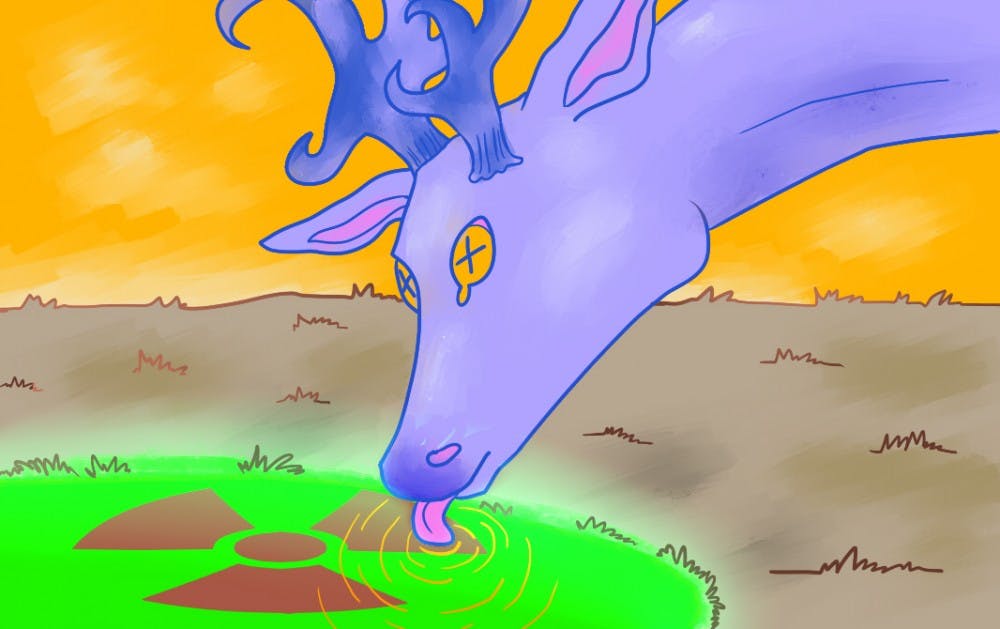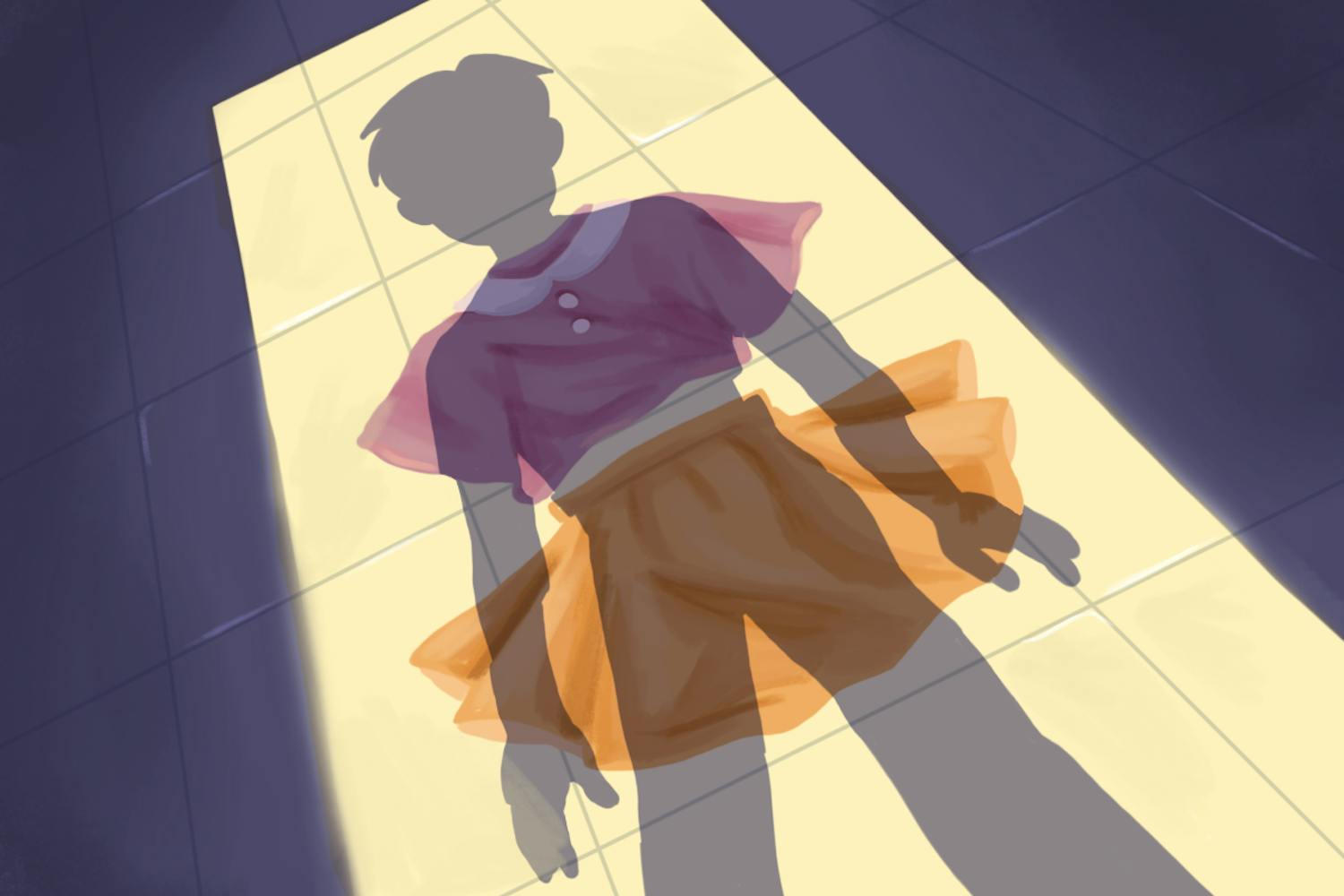Waste, habitat destruction and light pollution – these are a few results of human actions that are negatively impacting other inhabitants on this pale blue dot we call home.
In a paper published in Nature Ecology & Evolution, ASU researchers Mathieu Giraudeau and Tuul Sepp studied this effect on animals, determining that human species are recognized as an oncogenic species, meaning that we change the environment in a way that causes cancer (and harm) in other wild populations.
In their study, Sepp and Giraudeau included other researchers like Paul W. Ewald from Louisville, KY, Frédéric Thomas from France and Beata Ujvari from Australia, who had experience working on cancer evolution and cancer in wildlife.
Tuul Sepp, a postdoctoral fellow and researcher in the McGraw lab at ASU, realized that the link between modern life and cancer might be strongly recognized in humans, but this link is completely overlooked when it comes to wildlife.
Sepp wrote that she came to this realization while working on projects related to the effects of urbanization on wild birds and anthropogenic effects on wildlife in the McGraw Lab.
She wrote that detrimental effects on animal populations vary based on species, but the most general problem is habitat loss.
“This actually results less from urbanization, which might, in some cases, even create novel habitats,” Sepp wrote in an email, “but more on destructive agricultural practices and deforestation. In our article, we have brought out habitat loss as a factor that can be linked to cancer prevalence either by decreased genetic diversity, increased stress levels or increased infectious disease probability.”
Mathieu Giraudeau, postdoctoral fellow and researcher in the McGraw lab at ASU, wrote that they came across an increasing number of studies on wild animals eating human food and being negatively affected by it.
He also wrote that light pollution had a similar harmful effect.
“Light pollution and its effects on wildlife is an intensively studied topic in urban ecology, and we know that light at night causes hormonal changes in wild animals,” Giraudeau wrote in an email. “The same changes are linked to increased cancer prevalence in humans. In fact, studying if and how anthropogenic changes in environments are causing cancer in wild animals, and which defense mechanisms these organisms might have developed against cancer, could help us understand human cancer better.”
Giraudeau wrote that cancer prevalence in wild animal populations is an obvious gap in human knowledge, mainly because cancer in wild populations is an understudied topic.
“Several teams around the world are currently trying to develop some project on this topic, but it is not an easy question to study because, for the moment, there is no good and reliable method available to measure cancer in the field,” Giraudeau wrote. “We hope that, within the next few years, some biomarkers usable for wild species will be developed and our team is working in this direction.”
Kevin McGraw, professor in the School of Life Sciences and principal investigator in the McGraw lab, said that some animals have been on Earth long before us and essentially, it’s more their planet than ours.
“We're fortunate to be a part of it,” McGraw said. “We should be stewards of our environment – sustainable managers and conscientious inhabitants of nature's place.”
McGraw said that as we continue to populate and impact the planet more, it’s getting harder for humans to control our influence throughout the world. Through different research programs, scientists can determine human effects on animal populations, which is important to truly see how and to what degree we are altering this planet.
McGraw said that it’s important to practice the 3 R’s: reduce, reuse and recycle, along with educating communities to be aware and appreciative of the world around us.
“Many people think that their actions towards nature do not affect them or the things that they're interested in, but as a scientist, if you can make your messages relatable, you can have that much more of a positive impact on people's values and behaviors towards nature and wildlife,” McGraw said.
Sepp said that humans should not destroy the habitats of wild animals, pollute the environment and feed wild animals human food.
“The natural environment has an amazing ability to clean and restore itself,” Sepp said. “We just have to stop damaging it in an increasing rate.”
McGraw said that this publication by his post-doctoral researchers inspires much-needed research.
“I hope people view this article as an early but gentle warning; one that contains some data and testable ideas, but not something that should make people worry that all of a sudden every bird in their yard has cancer, for example,” McGraw said. “It’s a statement of caution, that human-caused cancer in wild animals is possible and we now need to understand precisely how widespread of a threat this is and then consider what we can do to specifically ameliorate any harmful effects.”
Sepp wrote that it is not too late.
“To us, the saddest thing is that we already know what to do,” Sepp wrote. “The fact that everybody already knows what to do, but we are not doing it, makes it even more hopeless. I see hope in education; our kids are learning a lot more about conservation issues than our parents did, so there is hope that the decision makers of the future will be more mindful of the anthropogenic effects on the environment.”
Reach the reporter at jlmyer10@asu.edu or follow @jessiemy94 on Twitter.
Like The State Press on Facebook and follow @statepress on Twitter.




